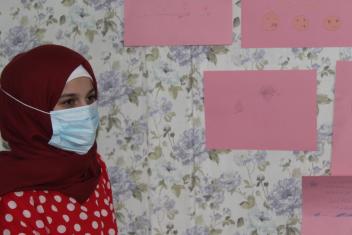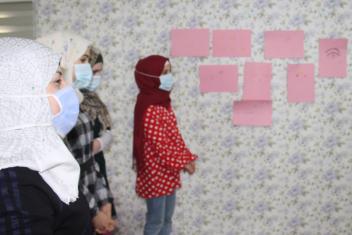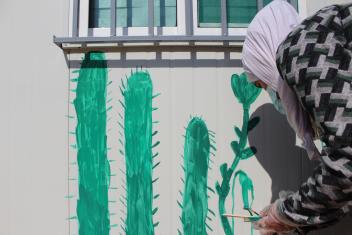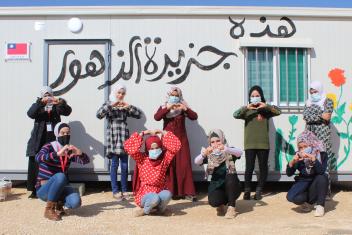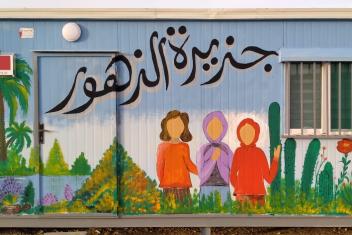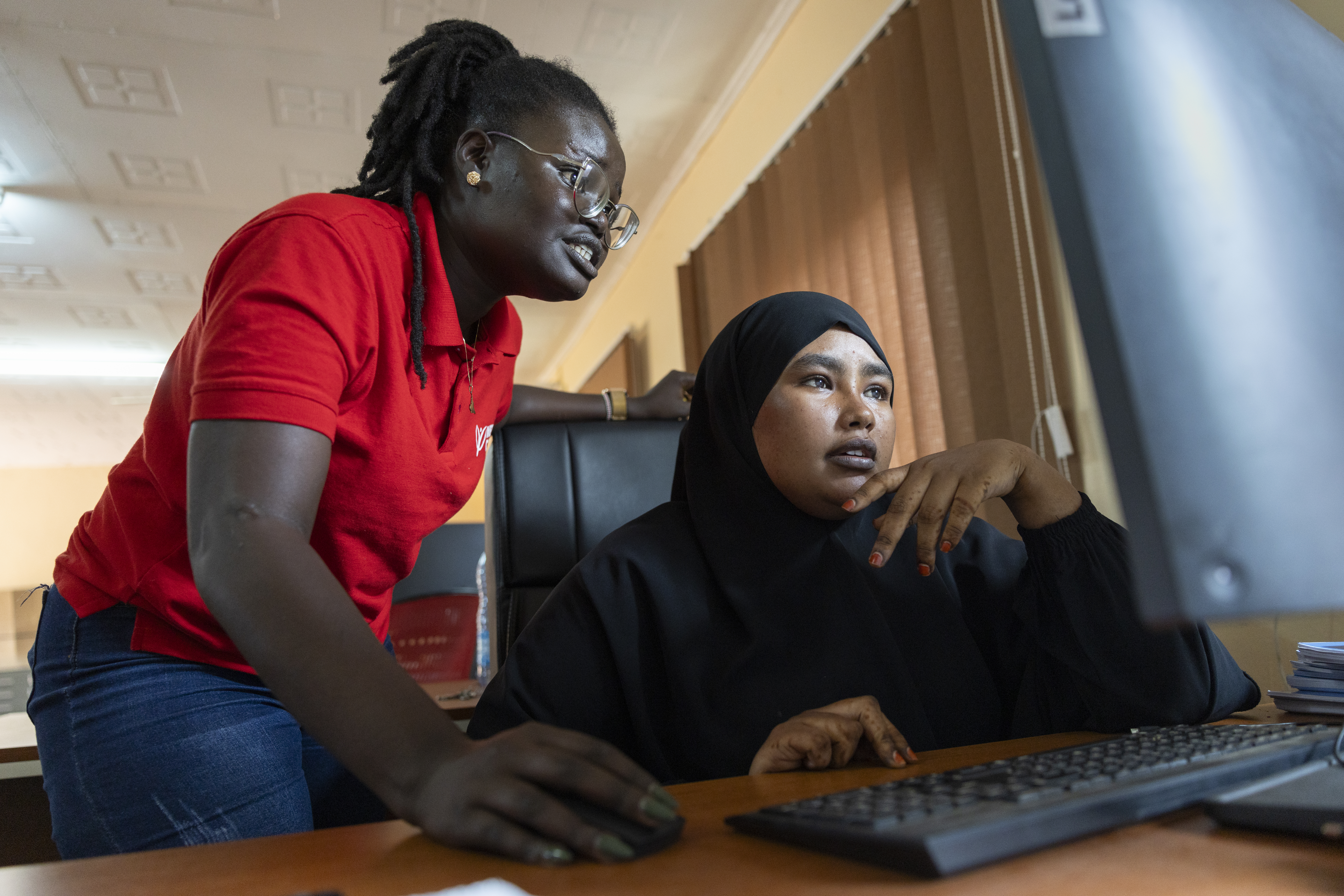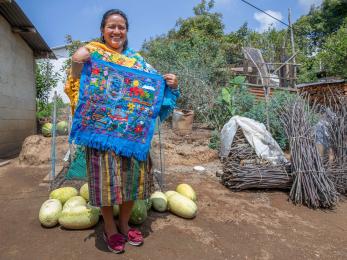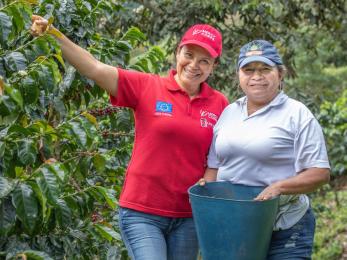3 ways our teams are challenging gender norms around the world
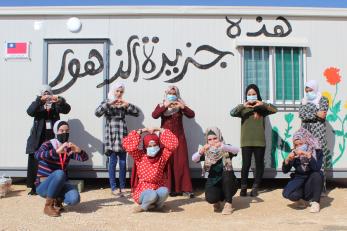
Although there have been major strides for women and girls over the last decades, many challenges remain. Girls’ global access to secondary education lags behind that of boys. Women are still sorely underrepresented in public life, representing only 25 per cent of national parliamentarians and serving as heads of state or government in only 21 countries. Violence against women and girls also continues to be a global problem, with high costs to both survivors and their communities.
While it is impossible to pinpoint a single cause for those challenges, we know that harmful gender norms play an important role in leading to discrimination and perpetuating gender inequality.
To highlight the work that still needs to be done to further advance women's and girls' rights, our team members share three ways they are busting harmful gender norms in their communities and countries.
Redistributing care work through positive masculinities
In most countries, gender roles cause women to be seen primarily as caregivers and mothers. As a result, women carry out at least two and a half times more unpaid household and care work than men - from cooking and cleaning, to fetching water and firewood or taking care of children and the elderly. This limits their ability to access paid work, participate in decision making or complete their education, and normalises gender-based violence.
Our teams recognise that engaging men and boys is a critical component of changing harmful social norms and attitudes. For boys and men to become more effective advocates for gender equality, these gendered perceptions, behaviours and relationships must be reshaped.
In Mali, our team members address the issue head on, starting in their own homes and families.
“The unequal distribution of tasks between men and women only reinforces the notion that men are more valuable than women in society. At home, I treat my girls and boys equally, taking into account their specific needs, and I divide the domestic tasks between them,” says Assitan Camara on our Mali team.
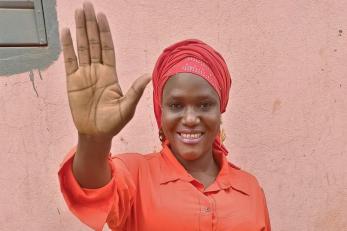
In Colombia, our team proactively engages with men to raise their awareness of the burden of unpaid care work of women.
“Through reflection spaces to deconstruct hegemonic masculinity, we encourage men to make commitments to ensure that household activities are distributed evenly,” says Yanet Rodriguez, Programme Manager Gender & Economic Development of Rural Women on our Colombia team.
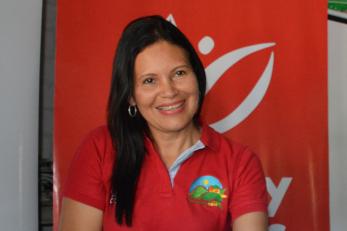
Bringing women to the decision-making table
Evidence shows that women are underrepresented at all levels of decision-making across the world. The structural belief that women do not belong in public spaces such as government is largely to blame.
In the conflict-affected and fragile places where we work, our teams focus on the inclusion of women in peace and security processes as an imperative to sustainably address violent conflicts and sustain peace.
In Nigeria, through our Community Initiatives to Promote Peace (CIPP) programme, we work with grassroots women to form Critical Discussion Groups, platforms where women can meet and discuss how they can play a role in the peace process.
“Through our Women’s Critical Discussion Groups, women have gained in confidence. When they began they didn’t believe in their ability to contribute meaningfully to peace in their communities, and now these women go on radio to speak about peace and engage with their community leaders. They are seen in their communities as peace promoters. For us, that is positive change,” says Jite Phido on our Nigeria team.
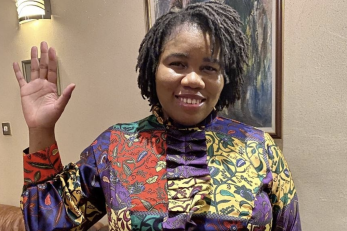
Letting girls take the lead on sexual and reproductive health
Limited access to sexual education, lack of youth-friendly services and traditional and societal norms are widely recognised as key barriers to adolescent girls’ sexual and reproductive health and rights. Often, adolescent girls report their own reluctance to access sexual and reproductive health services due to stigma, shame or lack of confidence.
In Jordan, when we asked young refugee girls what they wanted to discuss and how they wanted to do it, we learned that tweens usually prefer to learn about their bodies from older adolescents. That is when it became clear that girls had to lead the sessions themselves.
The result: nine adolescent girls in Jordan’s Za’atari Camp designed Jazirat Al Zohoor (The Island of Flowers), a storybook that helps tween girls learn about puberty in a fun way. Those girls are now peer educators and design and run sessions for younger girls. At the same time, each girl goes through her own journey to discover accurate information about her own body and become comfortable talking about puberty.
“At first I used to get shy from just hearing the word ‘period,’ but now I realise that it’s a normal thing, I’m used to it and can talk about it comfortably.”
‑ Zahra’a, 17, peer educator
The approach was so successful that our team recently brought it to the Azraq camp, where seven adolescent girls were invited to design their own safe space. They spent time painting and furnishing the place the way they liked, and learned to know and trust each other in the process.
What’s next for the girls? Designing and running sessions for all tweens and adolescent girls in the camp, focusing on their self-defined priorities.
Achieving lasting change for women and girls
The incredible work of our teams, partners and communities does not stop there. Achieving sustainable shifts in gender norms and roles takes time, and persistence is essential.
Through our work in more than 40 countries, we will continue to work side by side with communities to challenge every harmful norm and stereotype. Only when all women and girls are able to reach their full potential and thrive in secure, productive and just communities will our work be done.
